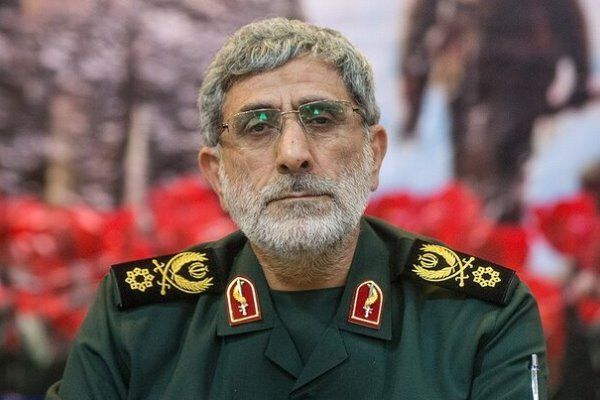
Iraqi Al-Alam correspondent reported that IRGC Quds Force Brigadier General Esmail Ghaani will travel to the Iraqi Kurdistan region after his meeting with the Speaker of the Iraqi Parliament Mohamed al-Halbousi and a number of other Sunni political leaders.
According to the report, Gen. Ghaani will leave for the Kurdistan Region to meet with Kurdish officials.
Earlier, the Lebanese Al-Mayadeen reported that General Ghaani arrived in Iraq on Sunday and met with Iraqi Prime Minister Mustafa al-Kadhimi and President Barham Salih as well as other Iraqi political officials in Baghdad.
Stressing the importance of avoiding any action that threatens the security of Iraq, General Ghaani said in his meeting that Iraq needs stability and internal unity.
According to these sources, Ghaani also stressed the importance of fulfilling the demands of the Iraqi people and protesters in a legal way.







